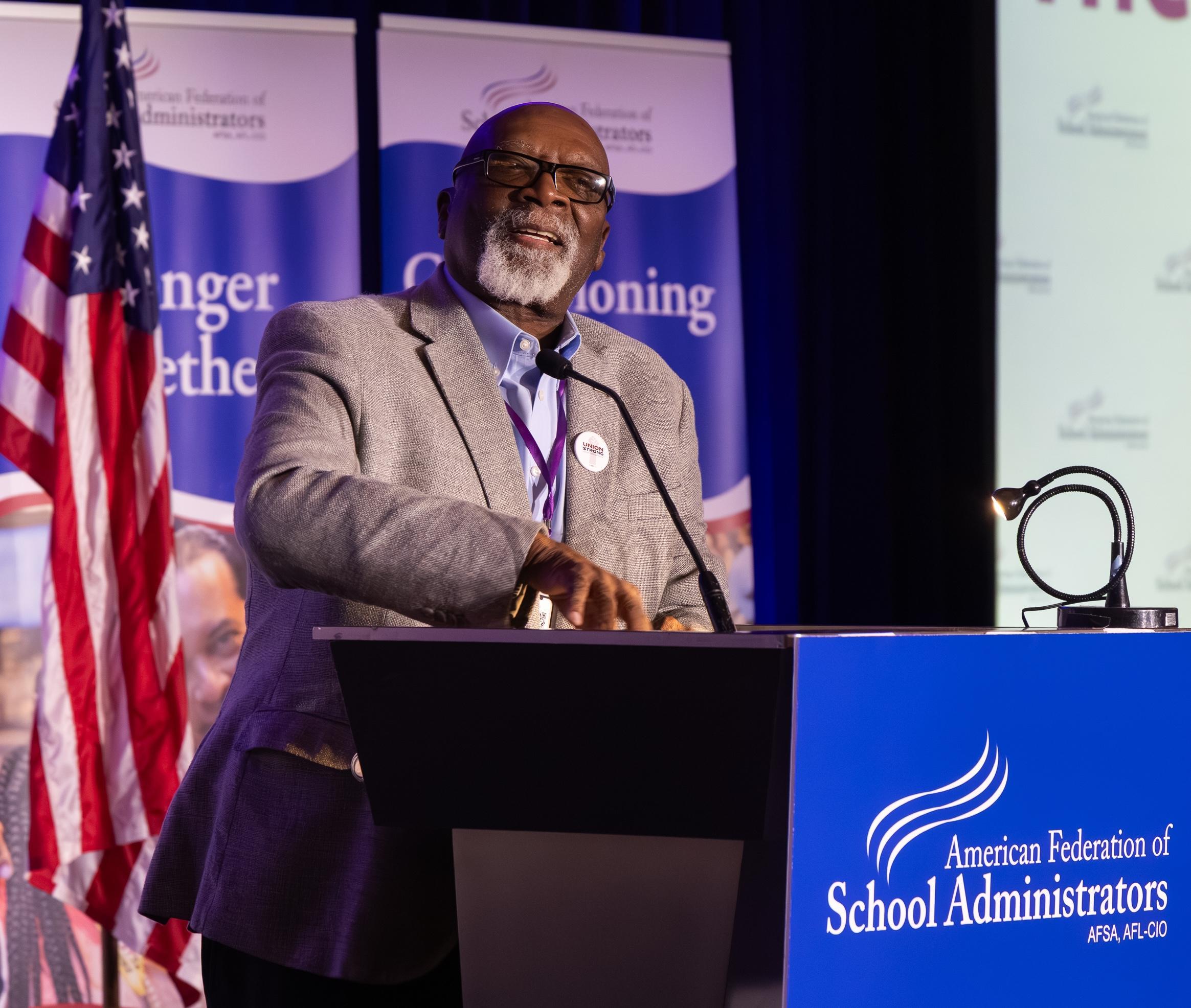Urging convention delegates to rise up, stay united, and “put words into action” in the face of growing political and economic threats to labor and public education, AFSA President Emeritus Ernest Logan said, “Brothers and sisters, we might be knocked down now, but we get back up and we fight. This battle is just starting. And there’s a hell of a lot more coming down the pipe.”
Reflecting on years of union advocacy, Logan shared vivid memories from tough negotiations, including battles under New York City’s then-Mayor Mike Bloomberg and Chancellor Joel Klein. Logan recounted when Bloomberg told him principals didn’t need a union. “I said, ‘Mr. Mayor, there are 1,500 school principals. They listen to me—they don’t listen to you.’” This story illustrated a long-held truth in labor organizing—power listens to power.
Despite political differences, Logan urged delegates to stand united around their shared identity as labor leaders. “We represented everyone—Republicans, Democrats, independents. But we have one thing in common—we are brothers and sisters in the union. We fight for working people. We fight for the children of our country. We’re doing God’s work.”
Logan made clear that political action is nonnegotiable. “We get quiet, we lose,” he warned. “We should have the strongest PAC. We know what’s needed more than anyone else does. But people don’t listen to you if you also can’t write that check.”
He compared members who don’t engage politically to inactive gym members. “If you don’t use it, you’re wasting it.”
Citing recent gains for school leaders in Chicago, Logan emphasized how collective power, fueled by organizing and funding, can break through even longstanding opposition. “Do you think the Chicago principals would have collective bargaining if they didn’t have the power of unions behind them?” He credited a united front—the Chicago Federation of Labor, Illinois AFL-CIO, AFSA,and Local 2—all of whom backed the effort financially and on the ground, knocking on doors, calling legislators and refusing to be ignored.
Logan also reflected on the long road to legitimacy for AFSA within the national labor landscape. “We’ve gone a long way from a little, small group that wasn’t that strong and powerful,” he said. “Now, we’re the national voice for school leaders.”
Logan, who serves as a national vice president of the AFL-CIO and sits on its Executive Council—a body that shapes labor policy for nearly 15 million workers—said he’s proud to represent school leaders at the highest level. “I’m your voice about what school leaders need,” he said, but he warned that voice must be backed by action from the ground up. “The AFL-CIO got a little quiet, and they got burnt. They didn’t listen to what the members wanted. So we listen to our members. AFSA listens to you. And that’s why we’re strong.”
Calling every delegate a leader, Logan charged them to activate others in their locals and communities.
“You’re a delegate because someone thought you were a leader. Go back home and bring someone else in. Wake them up.” The mission goes beyond schools and contracts, he added. “You’ve got people in your church, your neighborhood. Get them involved.”
One of Logan’s most powerful warnings came near the end of his speech. “If you don’t tell your story, someone else will. And the story they tell is not the one that needs to be told.” He encouraged delegates to write to newspapers, speak out in their communities and proudly identify as union leaders in public education.
In closing, Logan led the crowd in a call-and-response chant:
“It’s better in a union.”
“It’s better in a union.”
“It’s better in a union.”

